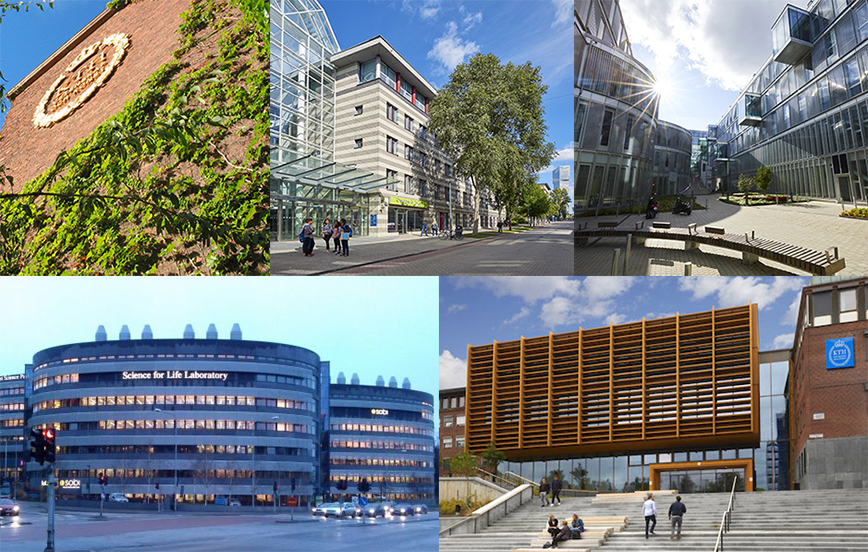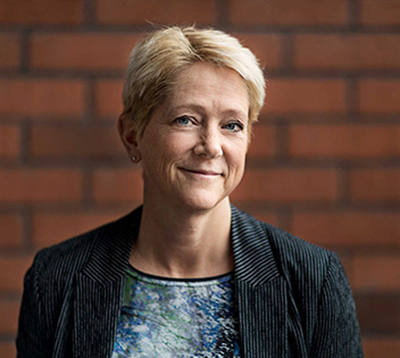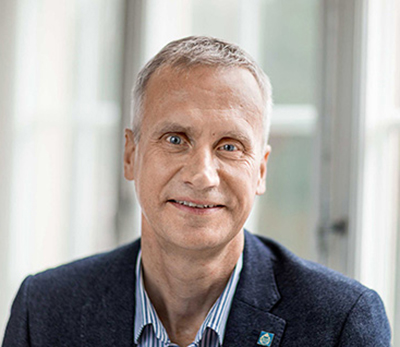School faculty assemblies at KTH show tremendous engagement in KTH’s development

Eighteen months ago, the Faculty Assembly was replaced by two other forums for faculty influence: five independent school faculty assemblies and the KTH collegial forum. During the pandemic, these meetings have been held online, which has worked very well.

“When the pandemic broke out, we took the opportunity to move the collegial forum online and we have come to the conclusion that this is a good model as the faculty assemblies are spread around our five campuses,” says Vice Dean Sofia Ritzén .
“Meeting online across the whole of KTH for 90 minutes is incredibly effective. We are going to stick with virtual meetings,” says Dean Anders Forsgren.
Participation in a collegial forum, that are held twice a semester, has been relatively good, both he and Ritzén feel. They say that between 65 and 90 people attend them. However, they hope more people will prioritise participation over the next two years. These meetings, where participants often have the opportunity to discuss things in small groups, do not concern issues that affect participants’ own areas of operation. The focus is at a general level, how a university can develop and what role a university has in a democracy. These issues very much concern researchers and teachers however, and the sense of engagement in these discussions clearly show this.
“The theme most recently was gender equality and recruitment on account of the fact that it is a hundred years since the first female student started to study at KTH. We discussed how far we have come since then,” says Forsgren.
Discussions about academic citizenship
Other themes were academic freedom and academic citizenship.
“We have taken what emerged from the discussions about academic citizenship to use as supporting data for further discussions in the Faculty Council. What academic citizenship means at KTH and how we can develop this,” says Ritzén.
According to Forsgren, the school faculty assemblies, that have been held online, have also continued the discussion on academic citizenship. Otherwise, school faculty assemblies focus on school issues and they set their own agenda, he explains. In several cases, there has also been a dialogue with school management which has had an impact on both management and which issues the school faculty assemblies would address in those cases.
Good connection with KTH:s management
Three times per semester, The Dean and Vice Dean meet with the chairs and deputy chairs of the school faculty assemblies plus teacher representatives from the University Board.
“We touch base and synchronise to ensure they get to hear what other people are doing. This is one way of finding out what is happening in other forums” says Forsgren.
“There are also a number of issues that they have wanted further elucidation on. Issues that are important for them that they would like KTH management to pursue further. This will become a good connection between the university management and the faculty,” says Ritzén.
School faculty assembly elections in progress
The current mandate period for the school faculty assemblies is 2020–2021. Elections for the school faculty assemblies for the years 2022–2023 are being held right now. The mandate period is set as two years to enable many people to feel they can choose to become involved for a shorter time. The chair and deputy chair of each respective school faculty assembly are appointed by the dean and vice dean in consultation with the entire group of elected representatives.

“We hope and believe that some of the elected members will continue for a further two years. This will make for a good mix of experience and renewal,” says Forsgren.
He is careful to stress that when you talk about colleagues in the form of a collegial forum and school faculty assemblies, you are talking about colleagues within the faculty.
“Colleagues in this context are professors, associate professors, assistant professors, plus lecturers and researchers. This doesn’t mean that anyone else not in these categories is less important. All of us at KTH have important roles to play when it comes to high quality in research and education,” says Forsgren.
Håkan Soold